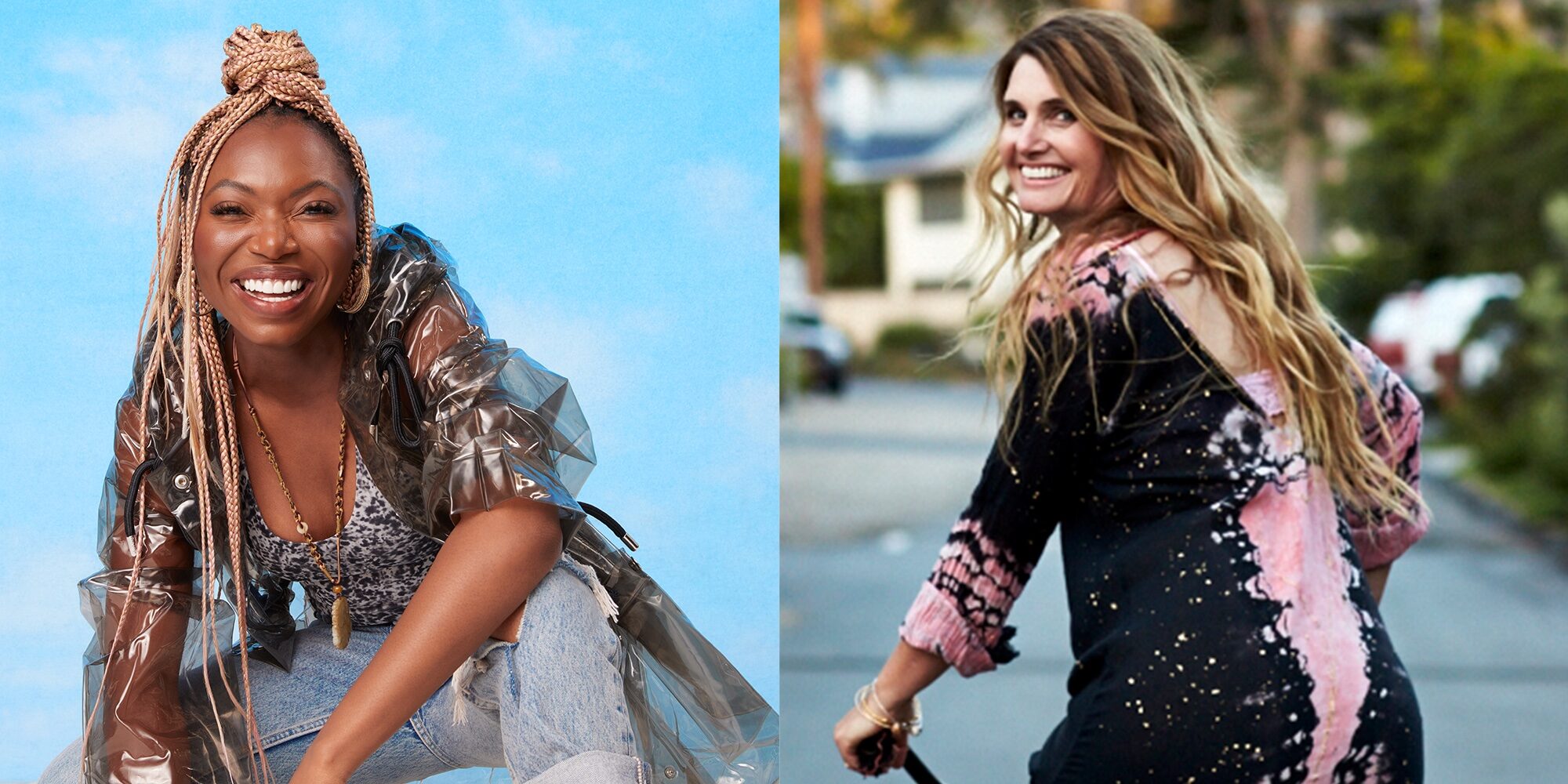
Uoma’s Sharon Chuter and Pacifica’s Brook Harvey-Taylor On Aligning Activism With Running A Business—And The Price They Pay For It
Increasingly, people are participating in consumerism based on their personal credos, whether they involve workers’, women’s or animal rights, environmentalism, racial equity, poverty alleviation or another issue. Nearly 85% of gen Zers, for example, say they buy based on their beliefs, according to an Edelman survey of thousands of them. But whether brands can or should work to achieve societal change isn’t a settled matter. Selling products for profits hasn’t historically been a path to parity, peace and ecological protection.
Sharon Chuter, founder and CEO of Uoma Beauty and Uoma by Sharon C, and Brook Harvey-Taylor, founder and CEO of Pacifica, are adamant that activism and business aren’t at odds. In the wake of George Floyd’s murder in 2020, Chuter started Pull Up For Change, an initiative calling on companies to divulge the number of Black employees they have in their organizations and leadership ranks, and followed up on it with Make It Black, an effort to spark conversations about the definition of Black and sentiment toward it, and Small Business Impact Fund, a fund supporting early-stage Black founders. Pacifica has been advocating for animal and human rights dating back to its 1996 launch, and recently has been a get-out-the-vote crusader.
“I can’t be about every single cause on the planet, but anything that comes to inequality, especially around women and around people of color, specifically the Black community, I am extremely vocal about those things,” says Chuter. “I can’t be in Iran right now, shaving my hair off and fighting the morality police with my bare fist, but what I can do is be their voice—and that’s what Uoma Beauty will continue to do, and what I personally will do in spaces that I really empathize with.”
Harvey-Taylor says, “I don’t think anyone should have the luxury just to be a brand. We’re all consuming, we’re all using resources. If you choose to be a brand, you have an impact, and you should therefore offset your impact with doing good in the world and creating a positive impact.”
Beauty Independent asked Chuter and Harvey-Taylor to discuss how activism manifests internally and externally at their companies, the expectations that arise from taking a stand as well as fallout they’ve experienced from it, and what they believe consumers will demand from brands in the future.
What does it mean to run an activist business?
Chuter: When I started the business, I didn’t really think of it in terms of an activist brand, but, in whatever work we produce, it has to be in tune with the times we live in. Unfortunately, we’re still living in times of injustice. So, for me, it felt almost counterintuitive and a waste of my time to come out there every day just talking about lipsticks while ignoring all the issues that are affecting everybody wearing these lipsticks.
I always say, “Giving back and serving the universe is the rent we pay for the life we’re given,” especially as a Black woman understanding that, to even have this conversation, people had to die for it. The access I have today or the rights to even live and be considered somewhat human has been won by the lives of other people. I can’t just sit here and not do more to make the lives of the ones ahead of me a bit better in the same way the people before did.
I see it as common sense, but, obviously, the world sees it is as an activist brand. It has its own unique challenges because people see you as political, and those are the two things you don’t want to mix. You don’t want to mix commercial and politics. We keep telling people we’re not political, we’re humanitarian.
The reality is you get a lot of friction, you are held to a much higher standard than everybody else is held, and also you tend to eliminate a huge amount of people, which is why most brands just stay benign and don’t talk about anything because it’s the easiest thing to do.
Harvey-Taylor: I love what you said, Sharon, about the political side of things. We get called out so often about, “Why do you have to be political?” To your point, Sharon, we don’t think it’s political to stand up for your reproductive rights. That doesn’t seem like it should be political. It doesn’t make us political to say, “Get out and fight for your rights.” I see a very distinct difference there. However, a consumer doesn’t always, and we do alienate consumers at times.
In my mind, no brand today should have the luxury of not being an activist or not standing up for sustainability or not doing something. Running an activist business is really about doing the hard work before you even get to talk about it. Until you’ve really taken risks, until you’ve really stood up for what you believe in and you’ve been just pummeled for it, I think you shouldn’t even be able to get out there and talk about the good things you’re doing.
There are expectations that come with being a brand that is willing to speak out. People get upset about us on, why aren’t you talking about this issue? We’re an activist brand, but we’re not a media company. We’re not going to talk about every single thing. We have a very focused platform around what we talk about and how we deal with our activism.
It goes back to my values as a human. Pacifica’s a very personal brand and our core value is compassion, which to me doesn’t just mean kindness. Compassion encompasses consideration, intention, it’s empathy with action behind it—and that’s where the activism comes in. We’re conscious of the way that we move through the world as a brand, and we’re purposeful about our actions.
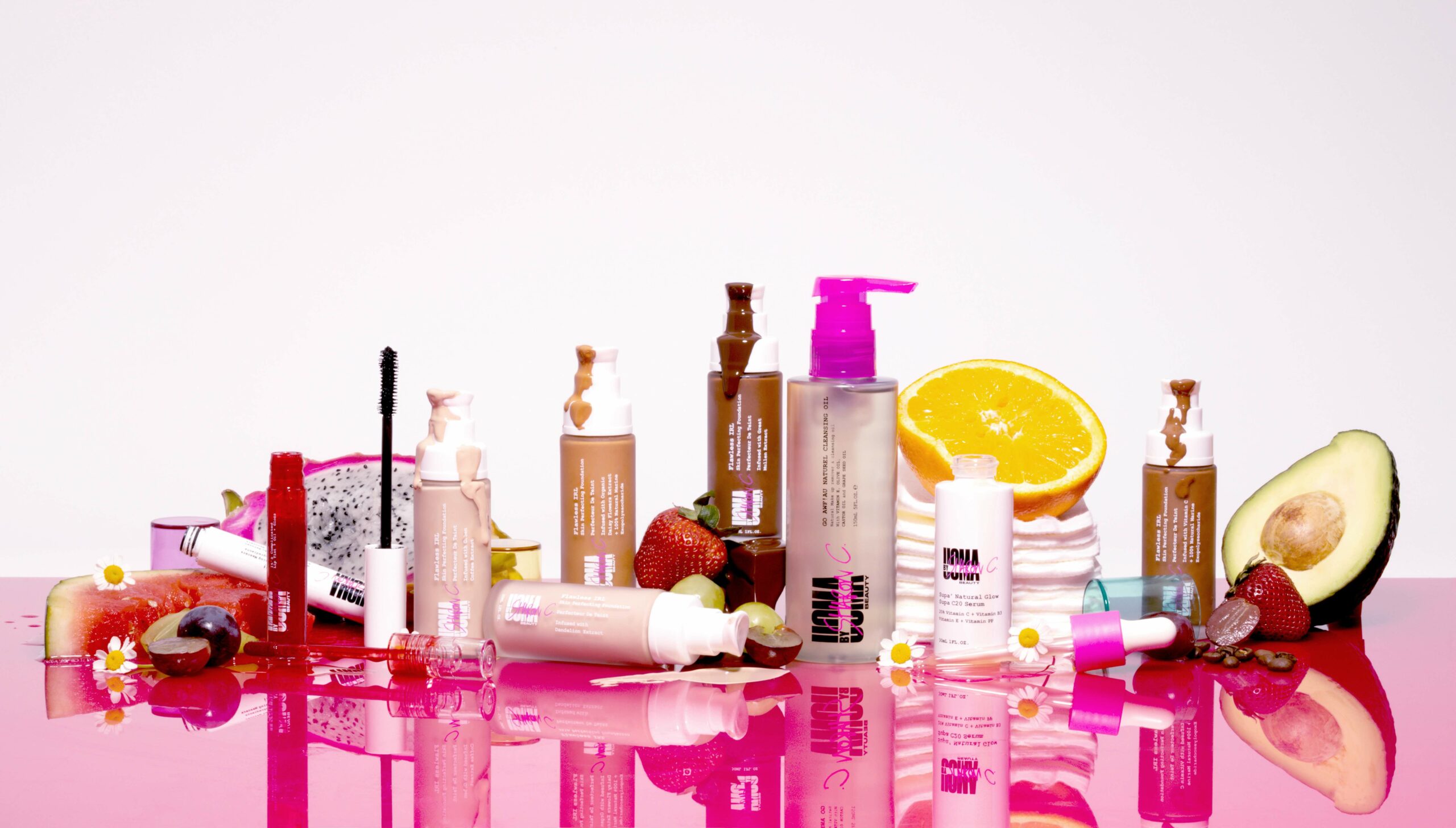
You’ve both talked about the challenges of leading activist brands. What are they?
Chuter: A lot of brands are so shy because people want to be everything to everybody, and people are not willing to take a stand. If you think about even when vegan or cruelty-free makeup was coming out and how that was considered radical at the time, which should have just been common sense. Animals should not be the playthings for women to be able to wear lipstick. You have to be prepared to pay the price. I think the early movers pay the price, and then it normalizes.
When we launched Uoma Beauty, a lot of the things I was saying were considered divisive. The first publication that published about my brand, it was so damning. They had the exclusive, and this writer wrote that it’s a shame because these are very beautiful, very amazing and innovative products that are shrouded by a divisive message. They called the brand “post-inclusive.” I was called an African elite, that I was going under the term of Afropolitan. It was really, really scathing. They just didn’t get it.
Everybody started to panic. My investors were panicking. Everybody started advising me, “Hey Sharon, you’ve got a split church and state, you cannot do this. You have to treat your products as products, and then your beliefs and your values, you can put that through your personal life, but you cannot put that into the brand’s voice because you’re going to continue hitting this friction.” On my side, I was prepared to lose everything because I didn’t come here to sell lipsticks. I came here to create community for people who’ve been left out, a community that can be vocal.
I actually lost a brand ambassador. I had signed one of the biggest ’80s icons of our time, and that was supposed to be the anchor of my year this year. Two weeks before we were supposed to shoot with this person, the management came back and said we had to delete every post on Black Lives Matter, and we have to commit to them in writing that we will never make a quote unquote political humanitarian post.
We had already presented this to our retailers, but we had to stand on our values at whatever cost. I paid a huge price this year just on that one move. But that’s the reality. You do it every single day of being an activist brand.
Your brands have outside investors. Can a brand have outside investors and still be an activist brand? Is that a balance that can be achieved?
Chuter: You just have to find the right investors. I’m very blunt with my investors, which is why I always struggle to raise money. I don’t want to mislead anybody. I’m always very frank on, this is what we stand for.
I always the caution that, if there was ever a time where we had to come to a crossroad between our values and money, we’ll always choose our values. It’s creating a new model for the future for people to understand that being ethical and profitability or having commercial success are not mutually exclusive.
Historically, the world has favored the Donald Trumps, people who are ready to do the most sleazy things. Now, we’re saying, “There is another way. There is a way where we can serve the world, serve the planet, serve the animals and the people who live in it, and we can also make a lot of money in the process.” It’s not either/or. It can be both/and. That’s the model that I’m running.
It’s different when you’re passively an activist where it’s sustainability. That’s softer on people. People are not angry about a brand that’s sustainable. What people are angry about is a brand saying women’s rights matter, a brand saying Black Lives Matter, a brand saying let’s stand up for the women in Iran. Those are very, very heavy topics that people tend to want to stay away from.
But what I’m excited about is the other day I saw YSL posting about mental health and resources, posting about abuse in relationships and ways to spot abuse. This was unprecedented. A brand like YSL would’ve never done that. People are starting to follow because they’ve seen consumers are reacting positively to it, but, at the same time, safeguarding themselves to not to go too far.
What we’re doing here is going to make investors in the future understand that there is a pathway to be vocal, moral and also make a lot of money. We’re still in the learning process. So, it makes it a bit difficult for me in particular to raise outside funding, but it doesn’t stop us from doing what we need to do.
Harvey-Taylor: Business and ethics can and honestly should live together. I think brands like Ben & Jerry’s and Patagonia are great models for living your values out loud as a brand. In capitalism, they’re tendencies to create massive wealth for some people while leaving others behind, but I love companies that are a force for good and that instigate positive change. Putting your ethics forward in your business is more expensive, but I think there are the right payoffs.
To Sharon’s point, it is a hard road, and there are brands that have had to really pave the way. We had to explain to people 25 years ago what vegan meant. It wasn’t commonplace. We didn’t even print it on our package 25 years ago. PETA was controversial, and people were like, “Oh my gosh, you can’t be certified by PETA, choose softer organizations to certify cruelty-free because they’re less threatening.” Today, that just seems normal, and the goal is normalizing these issues and creating a clear path forward together.
As far as investors go, I would say, similar to Sharon, choose the right investors. There are investors that work for certain brands and that share your values. Essentially, they become stewards of your brand. We’re lucky to have investors that are aligned with the direction that we want to take the brand.
You have talked about the expectations that activist brands are held to. Sharon [Chuter], when you said something about the Queen’s death, for example, that came with a lot of criticism. If somebody else had said that, perhaps that wouldn’t have been the case. What’s it like to deal with that?
Chuter: I’m not going to give a bullshit answer, it really sucks. Sometimes in your activism, people start projecting what they think you are, what they want you to be. That was a classic example of that, where that was a difference in opinion. We are a brand that was founded in the U.K. I have teams in the U.K., but then the expectation of my American audience was, no, don’t say anything, this is who you need to be, you need to hate this person.
I think you will have moments like that, and those are some of pain points that you go through. In those moments, it’s really hurtful. But, at the end of the day, what I always think about is how much your audience cares about your opinion and how much they care about you staying true to who you are. It was them questioning, have you lost your way? Do you no longer believe in what we believe in? Are you no longer fighting for us? Have you sold out to the man?
They understand that it’s a very tough road. They live with innate paranoia 24/7 that you’re going to stop talking about them, you’re going to get all of this money, and you’re going to leave them behind. That was what they were expressing there. It was the concern—Are you still with us?—and wanting to hear validation.
Unfortunately, social media doesn’t always do it in healthy ways. Moments like that that really hurt. Sometimes your ego comes into play to go, how dare you challenge my commitment to you after everything I’ve been through because you know what you’ve been through? But that’s not the way to do it.
So, yes, you will have moments like that. Yes, you get held to an extremely high standard. Yes, sometimes it’s tiring to be held at that standard because you’re always watching what you say, what you do, how you show up around people. Sometimes it feels cagey, especially for a person like me that believes in freedom and expression.
At the same time, you have to take it as, especially from the people with good intent, how much you mean to them. They really value who you are, and they’re worried every single day you’re going to deviate from that. That’s what they’re expressing in those times.
Harvey-Taylor: Even posting congrats to the VP during the last presidential election, we had thousands and thousands of negative comments. There are things that come out of left field where you’re surprised at how people respond on social media. We all have to rally around and go, “OK, how are we going to deal with this on social media? How do we talk about this?” There can be times that people come for you, and you just don’t even know that you did anything that would make people as upset as they get.
Even with animal rights, people will get really upset when you talk about it in an honest way. They will say, “Are you trying to make us vegan?” That surprises me because we don’t stand up and say everyone needs to be vegan. We really work to educate and let you know, if you want to be vegan for a day, look at the impact you’re going to have. If you think about using resources differently, this is the impact you can have. That’s how we talk about it so that we don’t alienate people.
Should brands really be the ones people turn to for change? Is the role of brands and businesses to do that?
Chuter: In my opinion, yes, because as a business, what are you doing? You’re ripping from the community, right? So, I don’t think giving back to the community should be a thing that is an ask. I think it’s a duty, and it’s an obligation. What we do to the planet is we just take, take, take.
As a person from Africa, I’m sensitive to it because that’s what that was my continent was. It was a place to just pillage and plunder and loot without giving anything back to it. Imagine if things had happened differently. Imagine if everybody had that same moral code that, if you’re taking from a place, you need to give back. The world would be a lot more balanced than we know it today.
The second part for me is the platforms and reach that brands have. In the past, religion was very popular. Everybody went to church or went to a mosque or whatever. We watched the same TV show. So, everybody was intertwined in communities. Today, we don’t have that anymore. Religion doesn’t have the power it had. And it’s almost brands have taken that spot, especially for the younger generation. They’re holding brands accountable because brands have become that watering hole.
Brands have become a cultural hub, and we can’t ignore that. Now, the first thing they’re asking about is, what are your values? People didn’t ask that of brands 40 years ago, 50 years ago. Nobody cared about the values of Kraft or Pepsi or Coca-Cola, but it’s different now because brands are playing a different role. Brands now have an intrinsic connection with people’s identity.
Harvey-Taylor: Industry has always used money and power to influence government, policy and people. You look at the petrochemical industry, you look at the ways that people have been pushing their weight around in the world. We don’t really think about it that way. Today, it’s smaller brands using their voice and platform and trying to make change.
Whether it is affecting policy or whether it’s affecting the consumer’s heart and mind, I think that it’s really important for brands to think that way. I don’t think it’s a new thing, but I think that newer and smaller brands are figuring it out and starting to use their platforms for good versus using their platforms to lobby government agencies. It’s just a new way of looking at it.
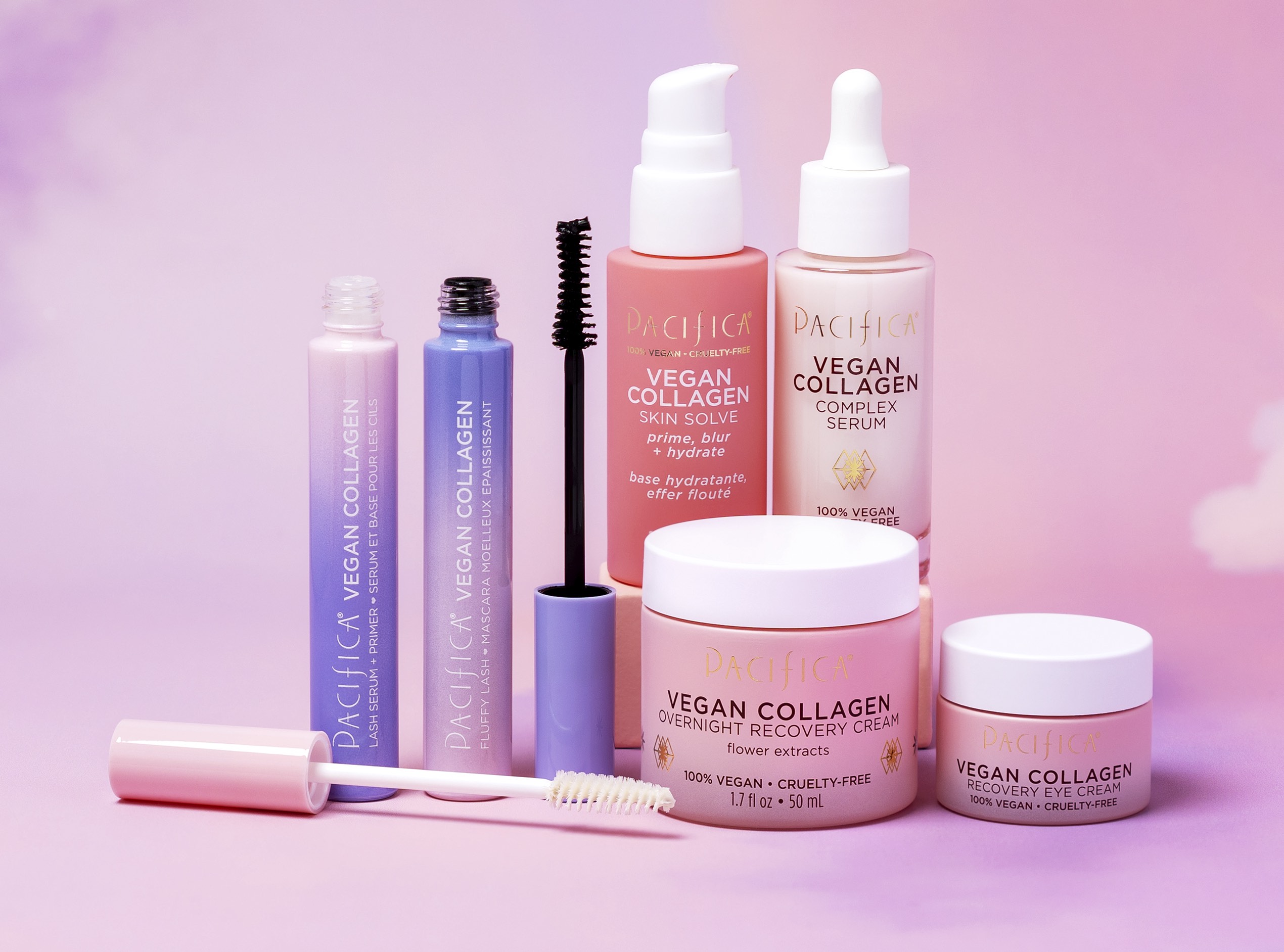
We’ve been talking about your brands’ activism externally, but how is it reflected in your internal structures and company culture?
Harvey-Taylor: We give time off for volunteers. We give people time off to vote, and that’s all paid. So, we really think about promoting activism within our own company. We supported the ACLU around get out the vote this last election. The ACLU said Pacifica was able to drive a ton of people to their website to get information to find out where their voting sites were. A lot of our employees made phone calls and really worked to get out the vote. I feel really proud that we internally spend the time on these issues.
We also talk a lot about it. We talk about our values as a company. We have what we call our compassion standards, it’s for our suppliers and around how we develop product, how we think about marketing, and it’s just our standards as a brand. Everyone who works at Pacifica understands what our goals are, our mission, our vision. It’s part of our company culture.
Chuter: We walk the walk, we talk the talk internally. We are very much about cultural celebration. We take turns to bring food from our culture and feed the office. People get to explore cultures. And our rule is there are no rules except one rule: The only rule is respect. Anything goes as long as you do it with respect, and you are conscious of the person next to you, but you have license to be yourself and be free.
I’ve had a lot of people work for me where it’s the first time they can take their textured hair to work. It actually happened to me this year. It was the first time I was taking my afro out to work. Just by the trauma of being from other companies where everybody would start touching your hair, I woke up that morning and was like, “Oh my god, people are going to touch my hair.” And it was like, no, I’m at Uoma, nobody’s going to touch my hair.
We’ve been doing four-day work weeks now for a whole year. We pay people for five days. So, we try to bring the values that we have externally internally, which is really important for us.
Again, talking about the downside of being an activist brand. People are always coming for you. For instance, our company, if you go on Glassdoor, people are saying all of this crap, people we don’t even know, but people are mad at you that much that they will sabotage you in every single way.
Our teams internally are so protective of that. I’m so grateful for them coming into a brand that’s this vocal. They understand the price that they also have to pay. People will send them a LinkedIn message, a DM and insult them. We all create the ecosystem where we can thrive despite the friction that we get because of the topics we talk about.
Looking to the future, what more do you think consumers will be demanding from brands in terms of their ethics and activism?
Chuter: Our customers are going to keep demanding more. Sometimes, it’s hypocritical. Everybody talks about gen Z wanting sustainability, gen Z wanting this and wanting that, but, when you think about it in real life and the brands gen Z built, Shein is a gen Z brand, Brandy Melville, Kylie Cosmetics. If you think about the brands gen Z truly has pumped their spend into, it’s the opposite of everything they’ve said.
The reality is that people are going to keep expecting more from brands. Then, as brands, we what we need to do is try to inspire them to make what they say real because there’s real life and there’s Instagram life. In the Instagram life of gen Z, it’s about ethics and sustainability. In real life, they don’t have the money to afford these things because they come at a premium. So, they default to the cheap and popular.
Right now, if you look at a lot of the brands that make an impact, the people powering them are millennials. Why? Because millennials, we’re now at the age where we’ve lived, we’ve seen the scars of life, we understand that life is not all a bed of roses. We’ve seen the ups and down, and we have the budget.
As gen Z matures, comes into their 20s, 30s and starts settling into values for real versus just saying it, we are going to see even a higher standard. They’re going to understand more and ask for things that are not just the buzzy, trendy things.
Harvey-Taylor: We’re never good enough. We’re held to higher standards even in our retailers than a lot of other brands, and yet people are still buying these other brands that Sharon mentioned and at a really fast past. When you put yourself in a position like Pacifica does where we stand for something, people do hold you to a higher standard. As we move into the future, that will continue.
It’s going to be really important to get other brands to come around to being better, thinking about the planet, thinking about animals differently, thinking about humanity differently. It’s part of our job as a brand to elevate other brands and get them to think about things in a new way. As we move into the future also, it’s going to be continually important to just stay true to who we are and keep talking about what we want to talk about even though it is a hard path.
This interview has been edited for clarity and brevity.



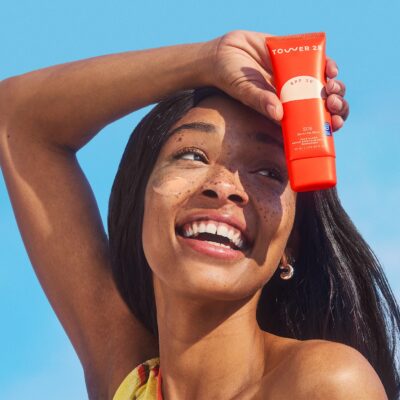
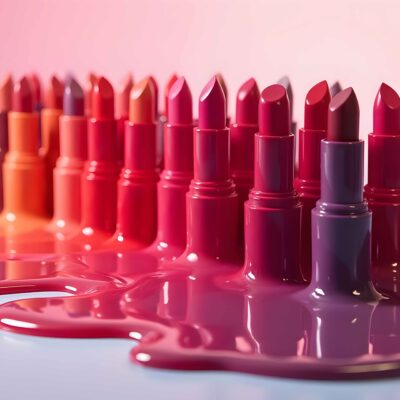
Leave a Reply
You must be logged in to post a comment.